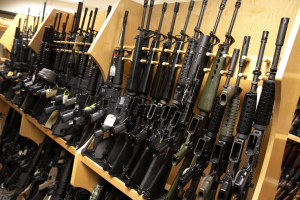After about a year of waiting, families of the victims and survivors of the Sandy Hook Elementary School Shooting in 2012 have finally faced off against the gun-maker Remington Outdoor Company in court. However, during the hearing, the legal representative of the company noted that it has federal immunity from the lawsuit.
The mass shooting occurred in December of 2012 and caused the deaths of 20 elementary students and six faculty staff members. During the incident, the suspect, 20-year-old Adam Lanza, wielded a Bushmaster XM15-E2S, which is a semi-automatic rifle variant based on the AR-15 platform.
As noted by the plaintiffs in the lawsuit, Bushmaster and its parent company Remington should be held accountable for the massacre for producing military-style weapons and selling them to civilians, USA Today reported. Drawing on the negligent entrustment argument, attorney Joshua Koskoff maintained that the company marketed its Bushmaster rifles to the general public without considering its possible consequences.
Nicole Hockey, whose son died during the incident, said that Lanza specifically chose to use an AR-15 rifle model, which was adapted from the M16, due to its ammunition capacity and lethal effect.
"Both weapons are designed for mass casualty assaults," the plaintiffs stated in the lawsuit according to Guns.com. "Both share features of exceptional muzzle velocity, the ability to accommodate large-capacity magazines, and effective rapid fire."
Remington, however, noted that the company is protected by law from lawsuits similar to the one filed by the families of the Sandy Hook shooting victims. James Vogts, the manufacturer's legal representative cited that the Protection of Lawful Commerce in Arms Act provides legal and authorized gun-makers with federal immunity from civil prosecution.
According to the attorney, under this law, companies like Remington cannot be held accountable when their products are used in criminal activities.
"All we are asking is you apply the federal immunity statute as it is plainly written and not decide whether it reflects good policy or bad policy," Vogts stated during the hearing according to the Hartford Courant.
Supreme Court Judge Barbara Bellis, however, has not yet made a formal decision regarding the case. But, she said that she will come up with a ruling within 60 days if the case moves forward.

















